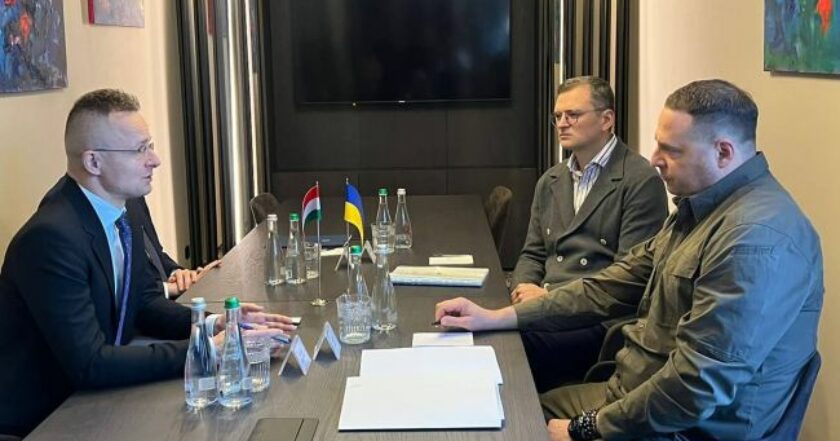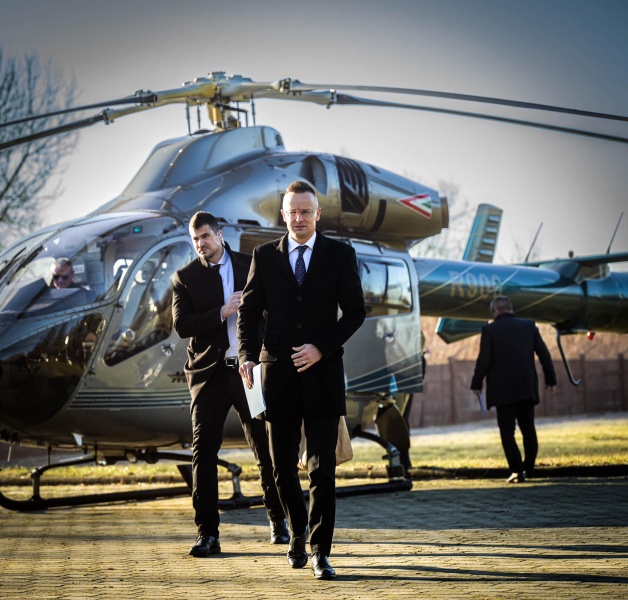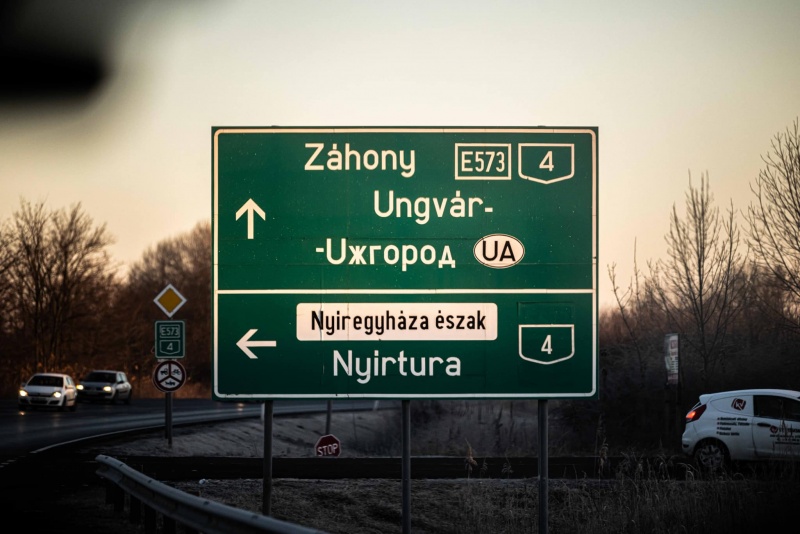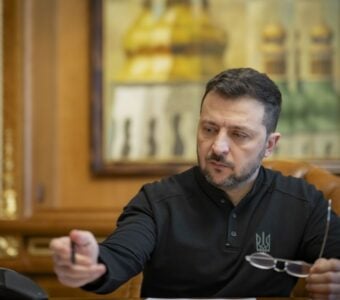Ukraine and Hungary start negotiations to mend bilateral relations

Photo: Telegram / Yermak
Today, the Hungarian Foreign Minister, Péter Szijjártó, along with a delegation, arrived in Ukraine's western city of Uzhhorod.
There, he started negotiations with the head of the Office of the President, Andrii Yermak, and the Ukrainian Minister of Foreign Affairs, Dmytro Kuleba, Rubryka reports, citing Yermak.
Earlier, Szijjártó announced, "Heading to Uzhhorod, a long day awaits us… We need to do everything for the Hungarian community in Transcarpathia to regain its former rights." He also posted a photo from his trip.

Photo: Szijjártó Péter

Photo: Szijjártó Péter
"We have started an important visit of the Hungarian delegation. We are meeting with the Minister of Foreign Affairs of Ukraine, Dmytro Kuleba, with the Minister of Foreign Affairs and Trade of Hungary, Péter Szijjártó, and his team," Yermak later wrote.
The head of the Office of the President stressed the importance of open and constructive dialogue between the countries and noted that the negotiations would focus on normalizing Ukrainian-Hungarian relations.
Background
On January 11, the Hungarian Foreign Minister announced his visit to Uzhhorod and meetings with his Ukrainian counterpart, Dmytro Kuleba. He also stated that the negotiations would involve preparations for the meeting between Prime Minister Viktor Orban and President Volodymyr Zelensky.
Szijjártó also shared information about his previous phone conversation with Yermak, during which he stated that a high-level meeting would make sense "if it can yield results."
At the end of December, Orban accepted an invitation from the President of Ukraine for a bilateral meeting. This will be the first official bilateral meeting between the two leaders since the start of the war. The president never discussed the ceasefire or dialogue with the dictator Vladimir Putin with Orban.
Hungary's Position on Ukraine
Hungary and Ukraine had almost no contact at a high level since the full-scale Russian invasion in February 2022. However, they have recently intensified contact at various levels.
Earlier, Zelensky stated that during a brief meeting in Argentina, he asked Orban to name at least one reason why Ukraine should not be in the EU.
As the Financial Times reported, before the summit, EU leaders struggled to understand what exactly Orban wanted. Was he following orders from Russian President Vladimir Putin or trying to force Brussels to unlock frozen funds?
Orban and his allies have repeatedly stated that their opposition to aid for Ukraine is not related to EU funding for Hungary. However, as the summit drew to a close, he finally named his price: the payment of the remaining €20 billion.
The Hungarian leader also noted that he has 75 more opportunities to block Ukraine's accession process, as each stage requires unanimous approval of EU members.
The EU approved the allocation of €10 billion to Hungary last week. However, any further allocation of funds is likely to face stiff resistance. The remaining €20 billion belonging to Hungary is withheld according to a separate procedure that gives Brussels the necessary leverage.
The issue of aid to Ukraine will be discussed at a separate EU summit in early February. To approve the agreement on providing a €50 billion aid package to Ukraine for 2024-2027, EU member states are considering depriving Hungary of its voting rights.






















































